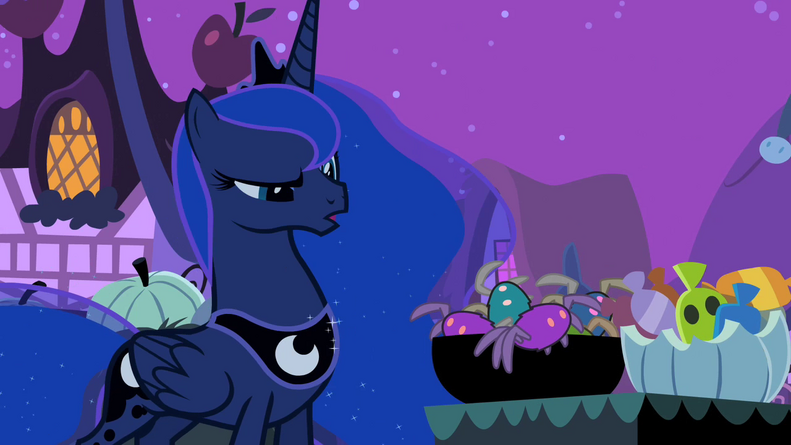Brandon picked a good time to bring attention to Aquinas's thoughts on games or playfulness in the Summa, as I've read and thought over the same passages in the past few weeks (albeit in the concise translation of the ST). As my blog's namesake implies, I do enjoy the occasional role-playing video game (e.g. The Elder Scrolls V: Skyrim) and I do have a bit of a jocular streak, as witnessed by my frequent pony-related references. The worry I've had on my mind is whether my video gaming or Bronyness distracts from more important and grave concerns, such as theological and philosophical studies, in addition to a life of Catholic devotion. In short, what role do entertainments such as video games and MLP play in the journey to the beautific vision, the knowledge of God that is the final end of man? Can a Catholic have fun?
| Here's Johnny! |
The Angelic Doctor seeks a balance between work (the virtue of studiousness) and good play (the virtue of eutrapelia). According to Aquinas, much study is tiring to the soul in the same manner as much labor is wearying to the body. Therefore, Aquinas suggests relaxation (playing games or telling jokes) from study, from intellectual contemplation, similar to bodily rest from physical labor. In Brandon's words, "We play because, despite being rational creatures, real thinking is hard work; thus the more we do it, the more we need to relax our minds, lest we wind ourselves up so tightly we break." Exactly, we need to unwind sometimes from the hard work of thinking less we break... or risk going completely insane like the writer Jack Torrance from The Shining, who's "all work and no play" (okay, perhaps this isn't the best example). In short, we need to have some fun!
 |
"Fun? What is this "fun" thou speakest of?
Pray tell, what purpose do these serve?"
|
So in my own life, the video games I play and the MLP-inspired comedy I enjoy can serve the purpose of allowing me to rest from my mental labors (and believe me, thinking about Thomism is hard work), in the same way sleep allows my body to rest. I can have some fun as long as I don't forget my final end, which is God.
Or as Applejack (for non-Bronies, the one with the scarecrow costume) tells Princess Luna in the MLP: FiM episode Luna Eclipsed, sometimes you have to:
 |
"...Loosen up a bit, be positive, play a few games,
have some fun."
|
Thus, you can sometimes relax, play games and have fun, sometimes even double
the fun!

No comments:
Post a Comment